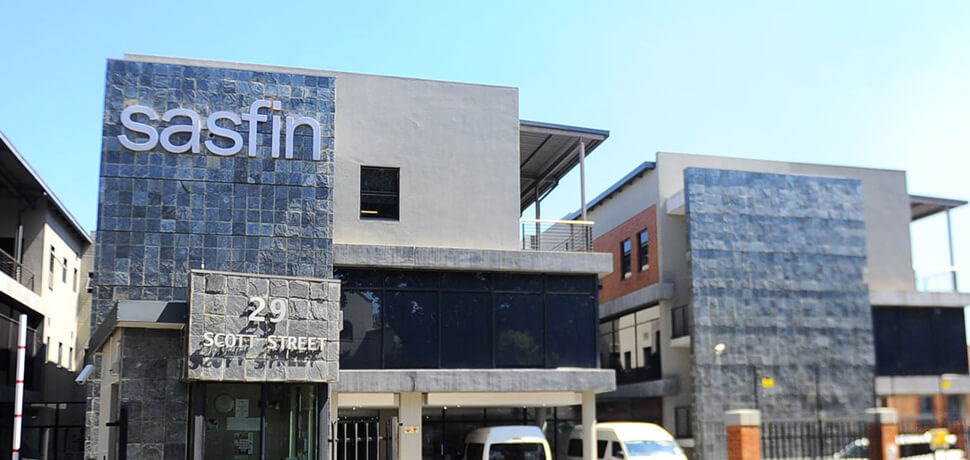
Increased IFRS 9 credit impairment provisions on loans and advances and government related securities as well as a decline in private equity valuations which consider the forecast weakened economy contributed to Sasfin posting a headline earnings loss of R48.617 million (2019: profit of R161.305 million) for the year ended 30 June 2020.
The credit loss ratio rose to 303 bps (2019: 102 bps) primarily because of increased provisioning against loans with the coverage ratio up 56% to 7.96% (2019: 5.09%). According to Group Financial Director, Angela Pillay, total income declined 6.37% primarily as a result of the negative mark-to-market valuations in the Group’s private and property equity portfolios.
“Excluding the impact of the private equity valuations, total income would have been flat year on year with good income growth in Sasfin Wealth. While costs remained flat, the lower income, resulted in the cost-to-income ratio declining to 82.20% (2019: 76.59%)”, she adds.
Pillay says that the Group recorded deposit growth of 3.17% to R5.139 billion (2019: R4.981 billion). Total assets declined 4.08% to R14.006 billion (2019: R14.601 billion) with net loans and advances contracting by 11.87% to R6.609 billion (2019: R7.500 billion) and available cash (net of Land Bank bills in 2020 and funding under repos) increasing 13.41% to R2.351 billion (2019: R2.073 billion).
Sasfin Bank posted an operating loss of R51.39 million (2019: Profit of R169.02 million) as a result of the increased credit provisions. According to Group Chief Executive Officer, Michael Sassoon, although the Group has seen a noticeable pick-up in volumes post the year-end, new advances remained lower than at our pre-lockdown levels.
“We have seen an increase in arrears in our book, which together with forward looking overlays resulted in a significant increase in impairments,” Sassoon says.
Sasfin Capital posted an operating loss of R66.08 million (2019: R10.65 million loss) as a result of the revaluation of the private equity and property equity portfolio. The Pillar’s revised focus on specialised lending has seen over R300 million in well secured term debt facilities provided to medium businesses.
Sasfin Wealth posted an operating profit of R66.41 million (2019: R52.71 million) as a result of record growth in assets under management of 18% to R48.7 billion. Offshore AUM now equate to 35% of total AUM. In recent years, Sasfin has pivoted a private client stockbroking business into a multi-asset class globally orientated wealth and investment manager.
Last week Sasfin Securities was recognised as South Africa’s Top Advice Led Stockbroker in the annual Intellidex Top Stockbrokers Awards, evidencing its strong client engagement model. This comes fresh off the back of two Raging Bull and Morningstar awards won by Sasfin Asset Managers earlier in 2020, highlighting the excellent investment performance of the business.
The South African economy had gone through much pain over the last few years ultimately culminating in the sovereign downgrade to sub-investment grade credit rating in March 2020. Covid-19 exacerbated this tough position which has impacted many of our business clients as well as the forecasts used in the forward-looking variables applied in our credit provisioning in terms of IFRS 9 and our private equity valuations.
Sasfin has obtained a R390m funding line as well as a $35m (circa R600m) loan guarantee facility (Nasira) from the FMO (The Dutch development bank) to provide loans to women, youth, migrant and Covid-19 impacted businesses. This offering is the next step in our digital business banking evolution and will be launched in 2021. Nasira has been rolled out by the FMO in other parts of the world and we are the first South African bank to offer this solution. Sasfin continues to develop its lending capabilities in Asset Finance and Sasfin Capital, which together with Nasira, ensure that we are well placed to fund businesses, critical to the growth of our economy.
Sasfin’s significant investment in digital capabilities has enabled us to transform the way we work and the banking experience for our clients. We continue to enhance our digital suite of products and during the lockdown months we serviced our clients remotely and recorded record growth in new business accounts.
More than 95% of our staff worked from home. The Group is embracing new ways of work which will incorporate a significant element of remote working, and the culture is proactively being shifted to enable this.
According to Sassoon, while the year ahead will remain challenging, Sasfin is committed to supporting the entrepreneurial spirit and investment goals of South Africans.
“Ultimately it is those businesses and investors who are at the forefront of the economic growth that our country so desperately needs,” Sassoon concludes.
Issued on: 30 September 2020 For media queries, please contact: Bryan Silke Investor Relations and Board Liaison Manager E-mail: bryan.silke@Sasfin.com Tel: (+27) (11) 445 8088 Cell: (+27) (83) 270 0720